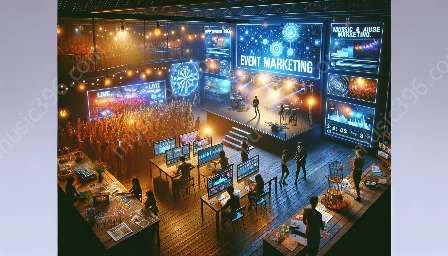Organizing and promoting music performances requires a thorough marketing plan that integrates event marketing and music marketing strategies. This comprehensive guide provides insights into effectively attracting and engaging audiences for live music events.
Understanding Comprehensive Marketing Planning
Comprehensive marketing planning for music performances involves a strategic approach to promoting and showcasing musical talent. It encompasses various elements, including audience targeting, promotional activities, and engagement tactics. By integrating event marketing and music marketing principles, organizers can create impactful strategies to ensure successful performances.
Integrating Event Marketing for Performances
Event marketing is essential for promoting music performances. This involves creating awareness, generating excitement, and driving attendance for the event. Key strategies include:
- Targeted Promotion: Identify the target audience and leverage channels such as social media, email marketing, and local promotions to reach potential attendees.
- Creating Experiential Campaigns: Develop engaging campaigns that offer a glimpse into the unique experience of the performance, enticing audiences to participate.
- Collaborating with Influencers: Partner with influential figures in the music industry or local community to reach a wider audience and build credibility.
Music Marketing Strategies
Music marketing focuses on fostering connections between artists and their audience. This entails leveraging the artist’s brand, creating compelling content, and leveraging digital platforms. Key strategies include:
- Brand Building: Develop a strong brand identity for the performer or band, aligning it with the music’s genre and target audience.
- Digital Content Creation: Produce engaging content such as music videos, behind-the-scenes footage, and artist interviews to captivate the audience.
- Utilizing Streaming Platforms: Leverage streaming platforms like Spotify, Apple Music, and SoundCloud to reach and connect with potential concert-goers.
Creating a Comprehensive Marketing Plan
Integrating these strategies into a comprehensive marketing plan involves several key steps:
- Defining Objectives: Identify the goals of the performance, such as audience size, revenue targets, and brand visibility.
- Understanding the Audience: Conduct thorough market research to understand the demographics, preferences, and behavior of potential attendees.
- Developing a Promotional Mix: Create a mix of promotional activities, including online and offline methods, to reach and engage the target audience effectively.
- Implementing Engagement Tactics: Plan interactive tactics, such as contests, social media interactions, and exclusive previews, to build excitement and engagement.
- Measuring Success: Define key performance indicators (KPIs) and establish metrics to evaluate the effectiveness of the marketing plan.
Executing the Marketing Plan
Once the comprehensive marketing plan is in place, it’s crucial to execute it efficiently. This involves coordination across various marketing channels, consistent messaging, and leveraging partnerships with collaborators and sponsors. Additionally, leveraging data analytics and feedback mechanisms can help optimize the plan during implementation.
Post-Event Analysis and Refinement
After the performance, conducting a thorough analysis of the marketing efforts and event outcomes is essential. Key aspects include assessing audience engagement, revenue generation, and brand visibility. This analysis can provide valuable insights for refining future marketing plans and enhancing the effectiveness of promotional strategies for subsequent performances.


























